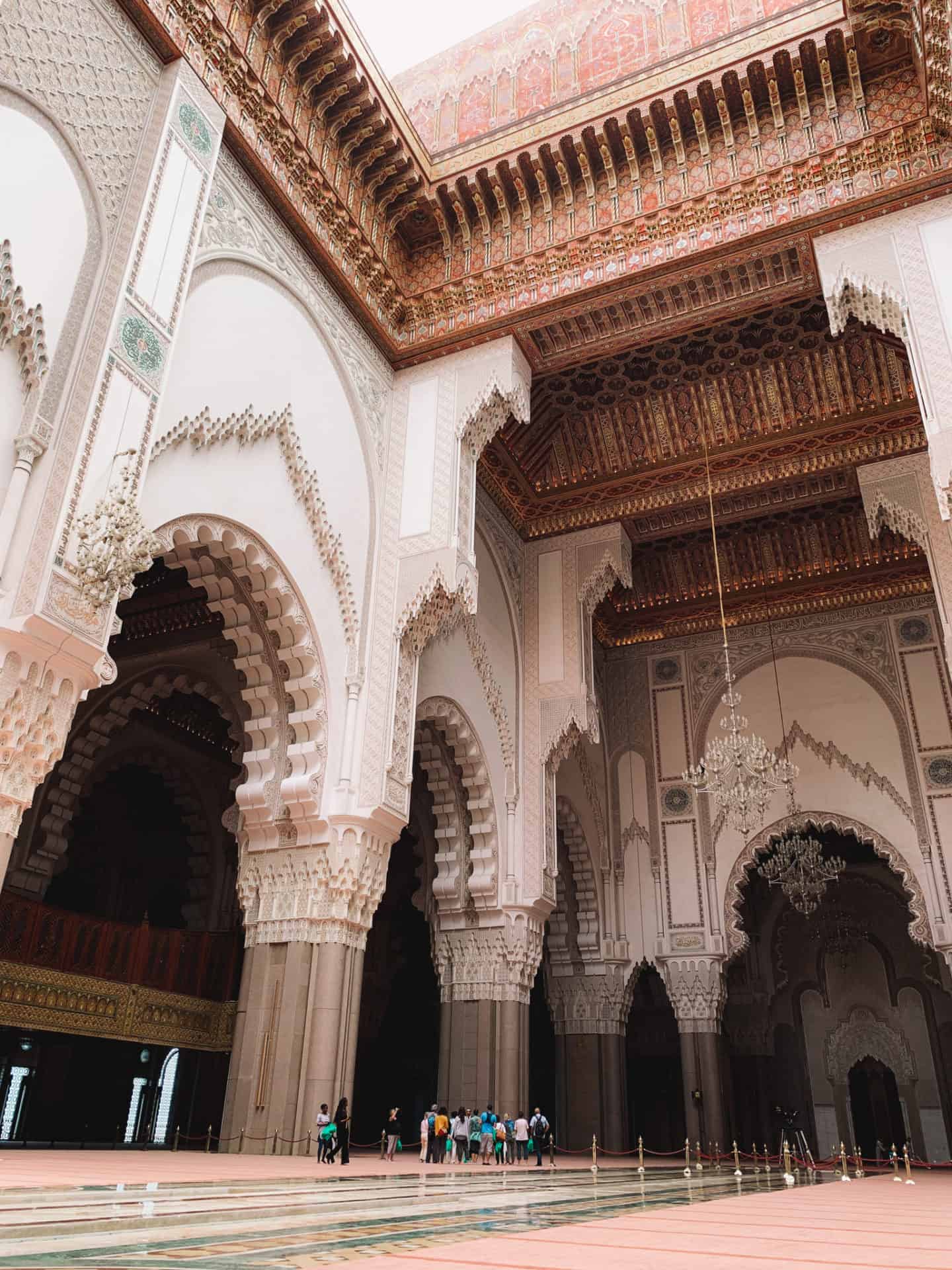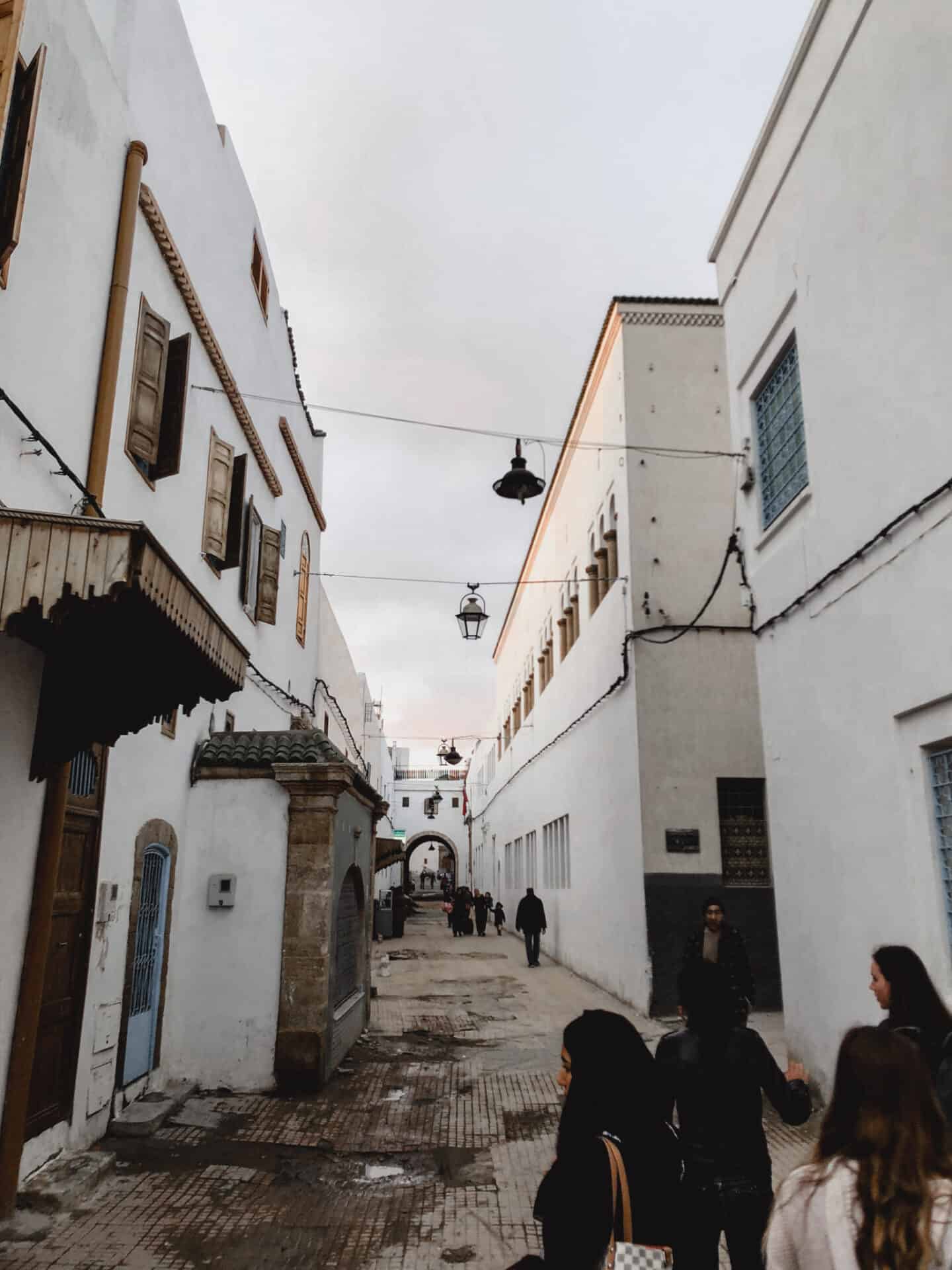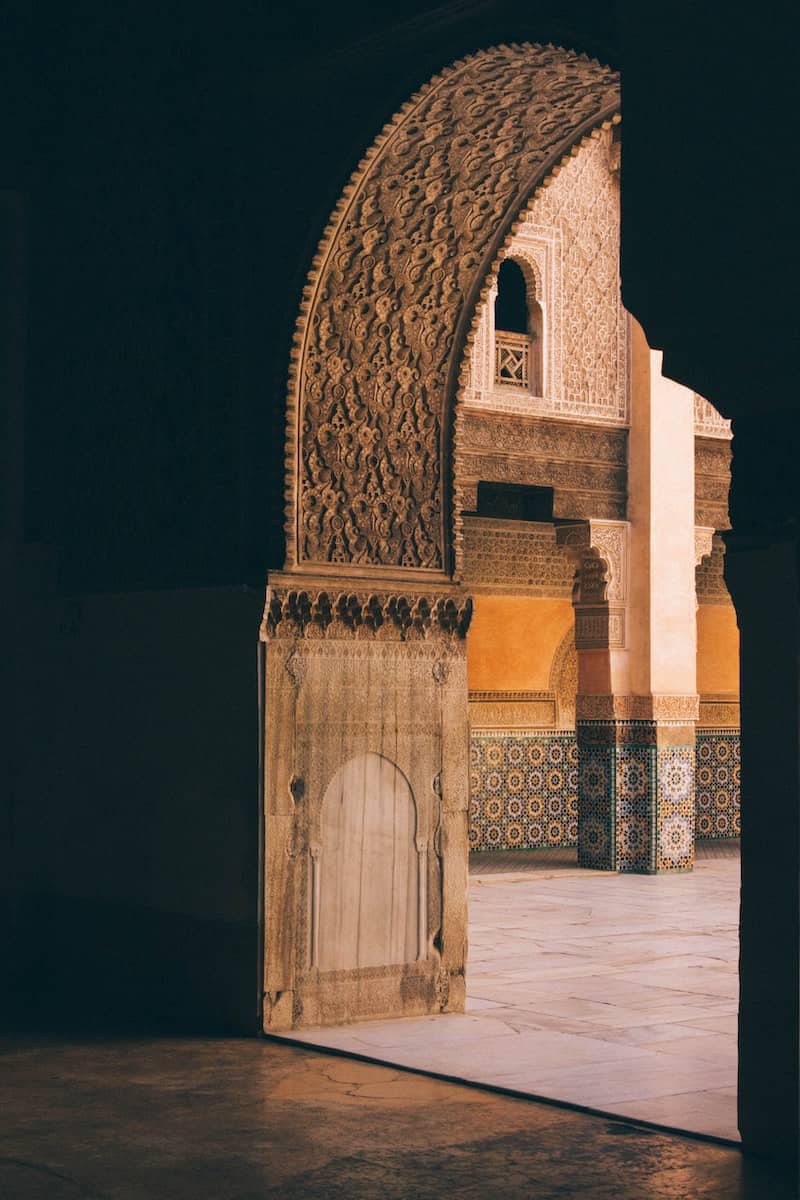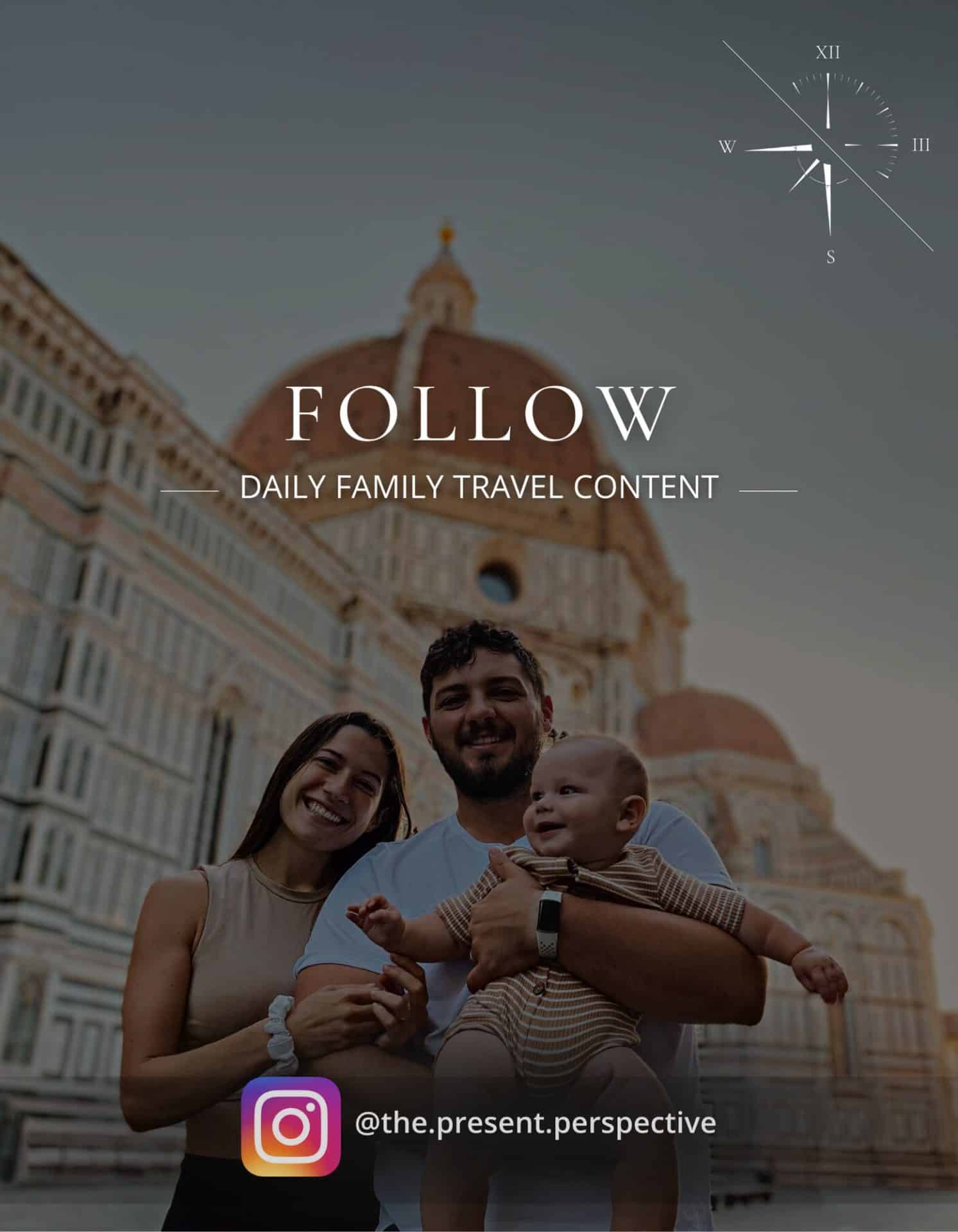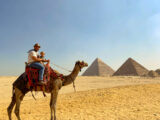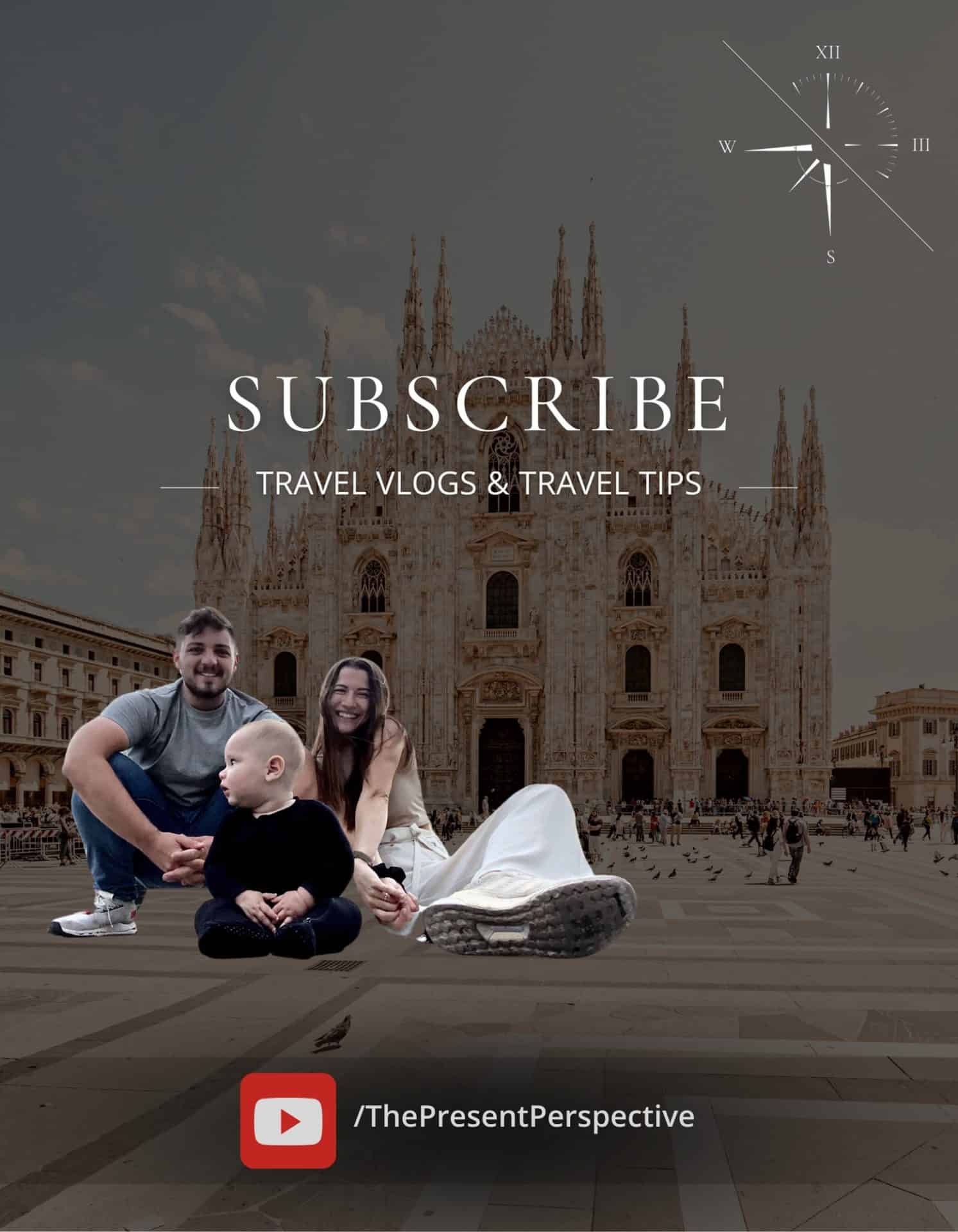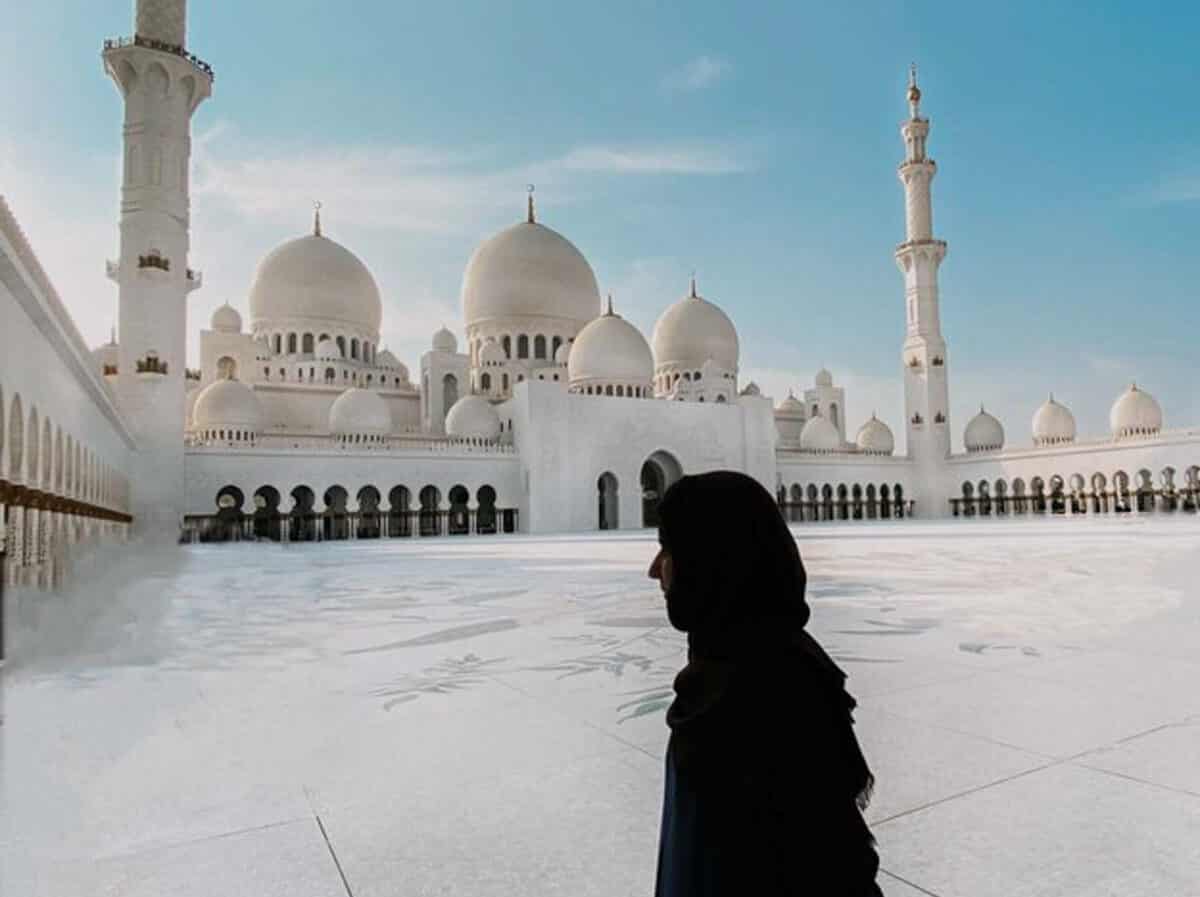
From Morocco to Bangladesh and everywhere in between, there are tens of Muslim countries in the world. Epic cities like Marrakech, Cairo, and Dubai are all predominantly filled with Muslim people who celebrate Ramadan every year. We have been blessed with some really unforgettable travel experiences in the 50+ countries we’ve gotten to explore, but one of the most memorable ones was definitely traveling around the Arab world during Ramadan.
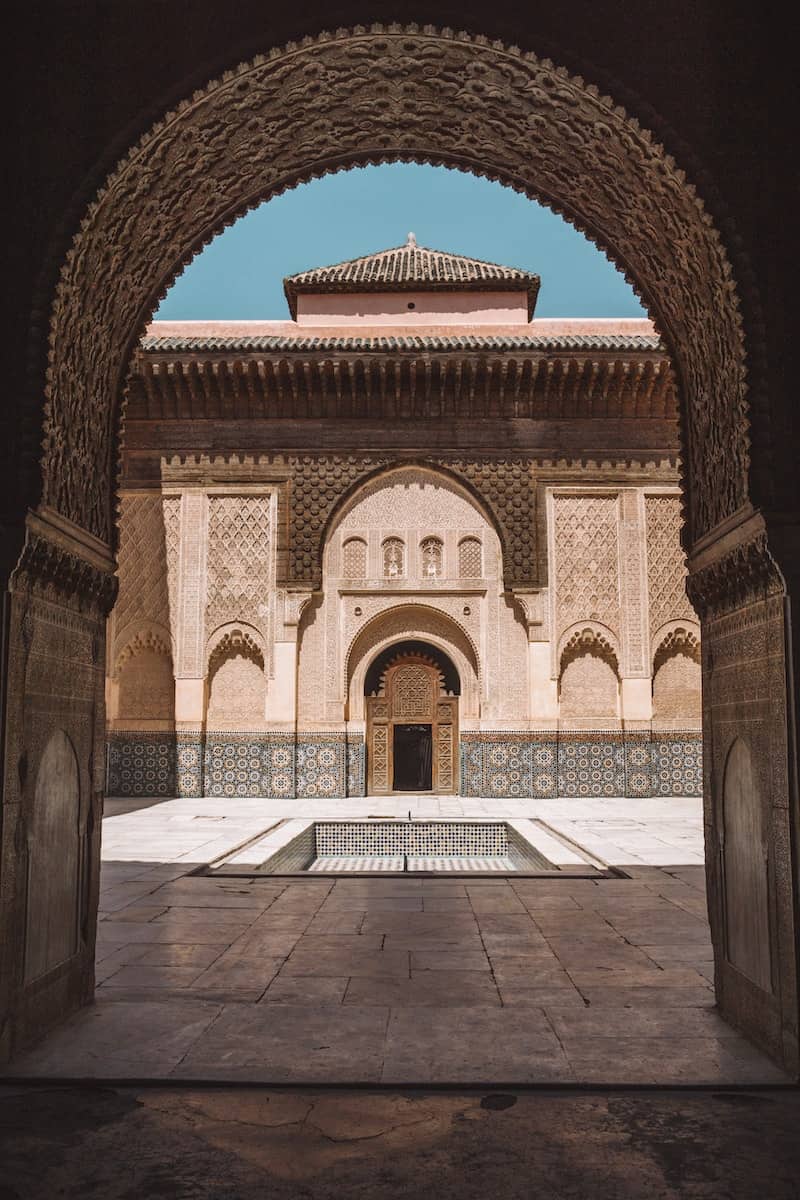
Ramadan is the holiest month of the year in Islam, and we knew that things were bound to look and feel differently than previous trips to the Arab world. Still, we weren’t sure what to expect when we hopped on our initial flight to Morocco for that trip.
We Visited Morocco During Ramadan
Our first trip to a Muslim-majority country during Ramadan was to Morocco, and it was very enlightening and eye-opening. Not only did we have a great time traveling around Morocco, but we also learned a lot about Islam and the devout religious dedication that exists throughout the Arab World. Morocco is one of the most visited countries in the Western Hemisphere, and is one of many Muslim majority countries around the world.
We have visited Morocco both during Ramadan and not during Ramadan, and it almost feels like we visited two different countries. While the local culture is the same year-round, the atmosphere is very different during the month of fasting!
First, What Is Ramadan?
I’ve always been interested in learning about other religions. While I am a devout Catholic, I minored in Arabic and Islamic Studies in college! I like to consider myself very knowledgable when it comes to Islamic beliefs and customs.
Ramadan is the holiest month of the year in Islam. It is a time of spiritual purification, which is practiced in several specific ways. During Ramadan, things in Muslim-majority countries look very different, to say the least!
Ramadan takes place during the ninth month of the Islamic Calendar, which does not line up with the Western Gregorian calendar. Rather, it is a lunar calendar with loose dates that change every year. The end of Ramadan is marked by Eid Al-Fitr, which is one of the biggest celebrations of the year.
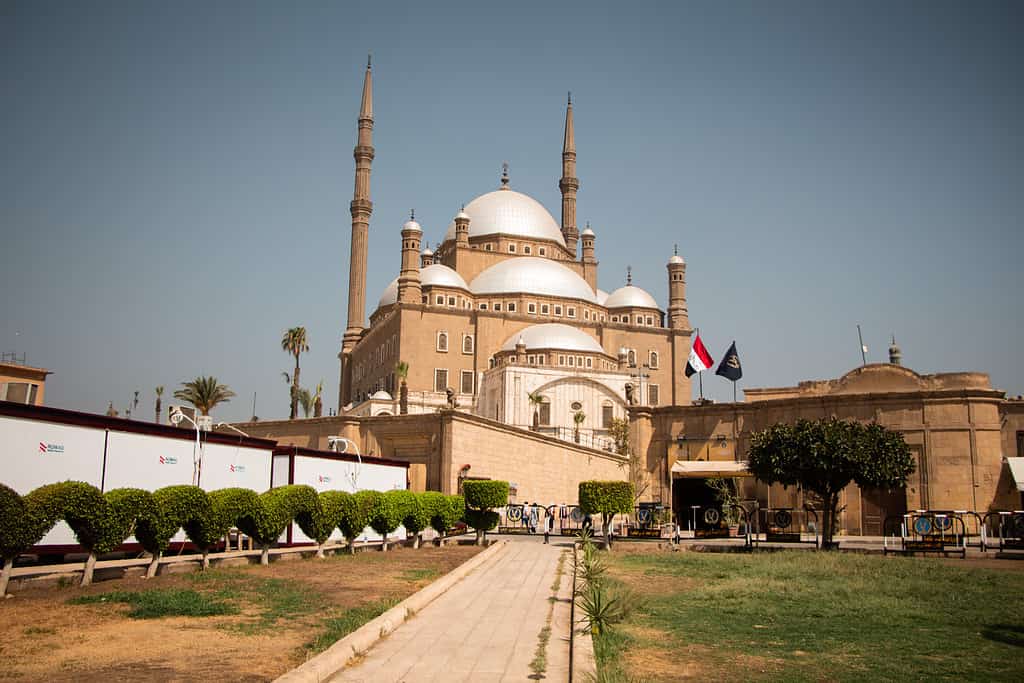
Muslims Use Ramadan for Spiritual Reflection
During Ramadan, practicing Muslims throughout both the Middle East and the rest of the world hone in their spiritual lives by remembering the five pillars of Islam. These pillars, believed to be passed down from the Prophet Mohammed, include the profession of their faith, prayer, almsgiving, fasting, and pilgrimage.
One of the most outwardly visible aspects of Ramadan is that all practicing Muslims fast from all food and drink during the daylight hours, or between sunrise and sunset.
The Muslim of Ramadan could be compared to the Christian practice of Lent. Lent is a period of spiritual preparation and sacrifice leading up to Easter, and is the holiest month of the year for most Christians. Between fasting, almsgiving, and intense prayer, there are many similar religious practices between each of these holy months.
The trip was very enlightening and eye-opening. Not only did we have a great time traveling around Morocco, but we also learned a lot about Islam and the devout religious dedication that exists throughout the Arab World. This post is for everyone who is thinking of traveling to a Muslim country during Ramadan.
Things to Know About Visiting a Muslim Country During Ramadan
1. Beware of the Odd Hours of Operation
During Ramadan, it is very common for public spaces and major tourist attractions to be empty during the day. In fact, it is very common for stores, businesses, and restaurants in Muslim countries to operate on altered and diminished schedules. This is for many reasons, but largely due to the fact that people are fasting throughout the day and do not have the energy to work.
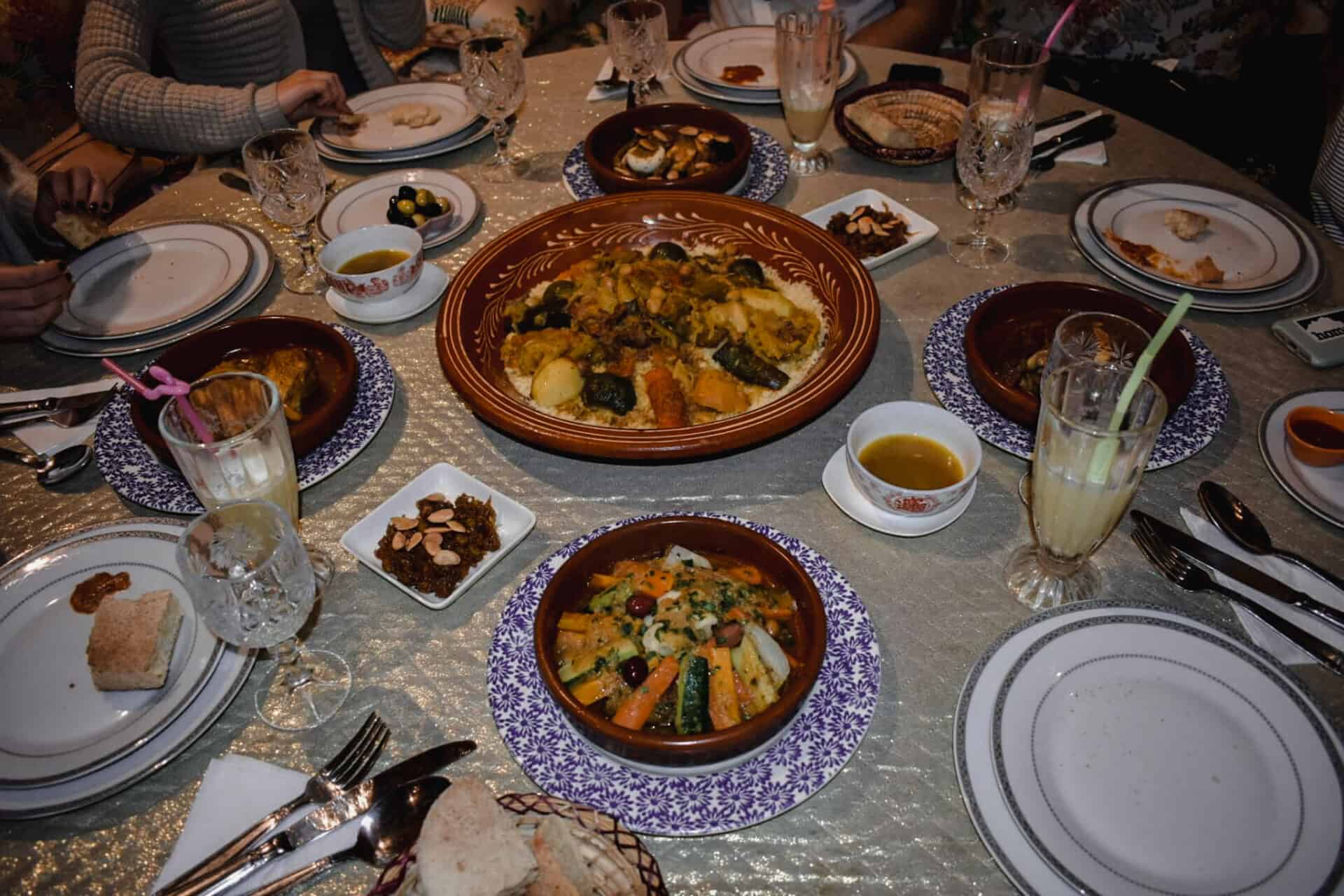
Muslim people often stay up late at night during Ramadan, as they eat their iftar meal and celebrate with one another. To accommodate the different sleeping and eating patterns, many owners change their business hours of operation. Many of our Muslim friends in Islamic countries around the world tell us they sleep until lunchtime during Ramadan!
What we found is that most places tend to be open in the evening, but mornings can be hit or miss. In major cities, there is a better chance that things will be open during regular hours.
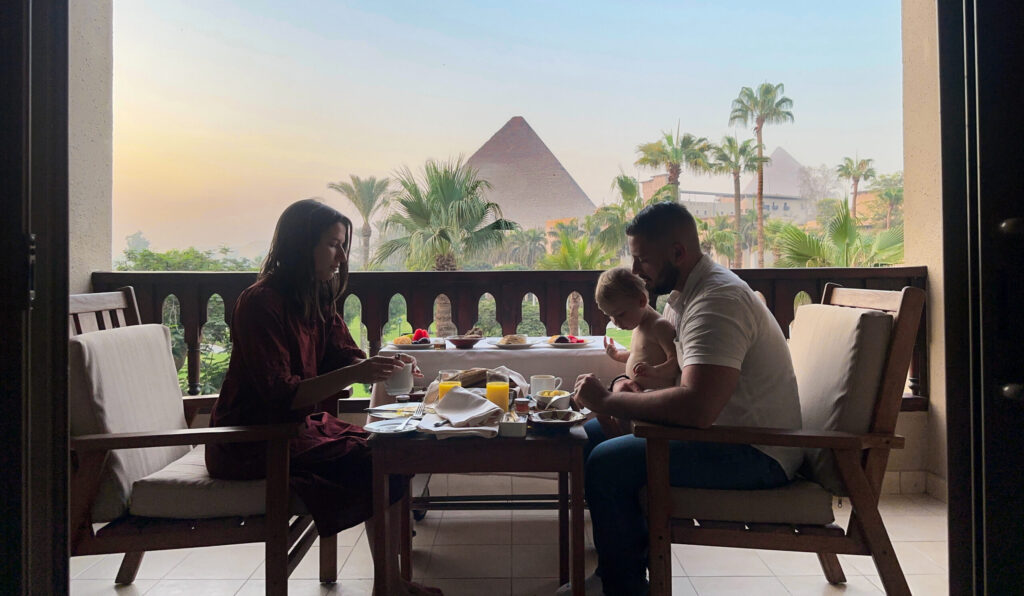
If you are staying in a place that doesn’t serve you a hot breakfast, you might want to buy breakfast ingredients in the evening beforehand to avoid being forced to fast yourself! Arab countries are known for their delicious fresh produce, and this could be a great way to expose you to new flavors!
If you want a unique cultural experience, be sure to head out after sunset to the main square of whatever city you are in. There is sure to be a celebration going on as the locals break their fast for the night! In most major cities, you can expect a lot of loud music and dancing as Muslim communities celebrate finally having some food in their stomachs!
2. Dress Extra Modestly
Muslim countries tend to be more conservative than most Western countries, and this conservatism carries over into attire. This applies throughout the year, but is extra relevant during Ramadan. While the expected attire of tourists varies from country to country, it is always more conservative than anywhere in Europe or North America.
I wrote an entire post on what to wear in Morocco. While most Arab countries don’t actually assign dress codes to visitors, it is very important to respect Islamic traditions and wear very modest attire while in public places. This applies equally to both men and women.
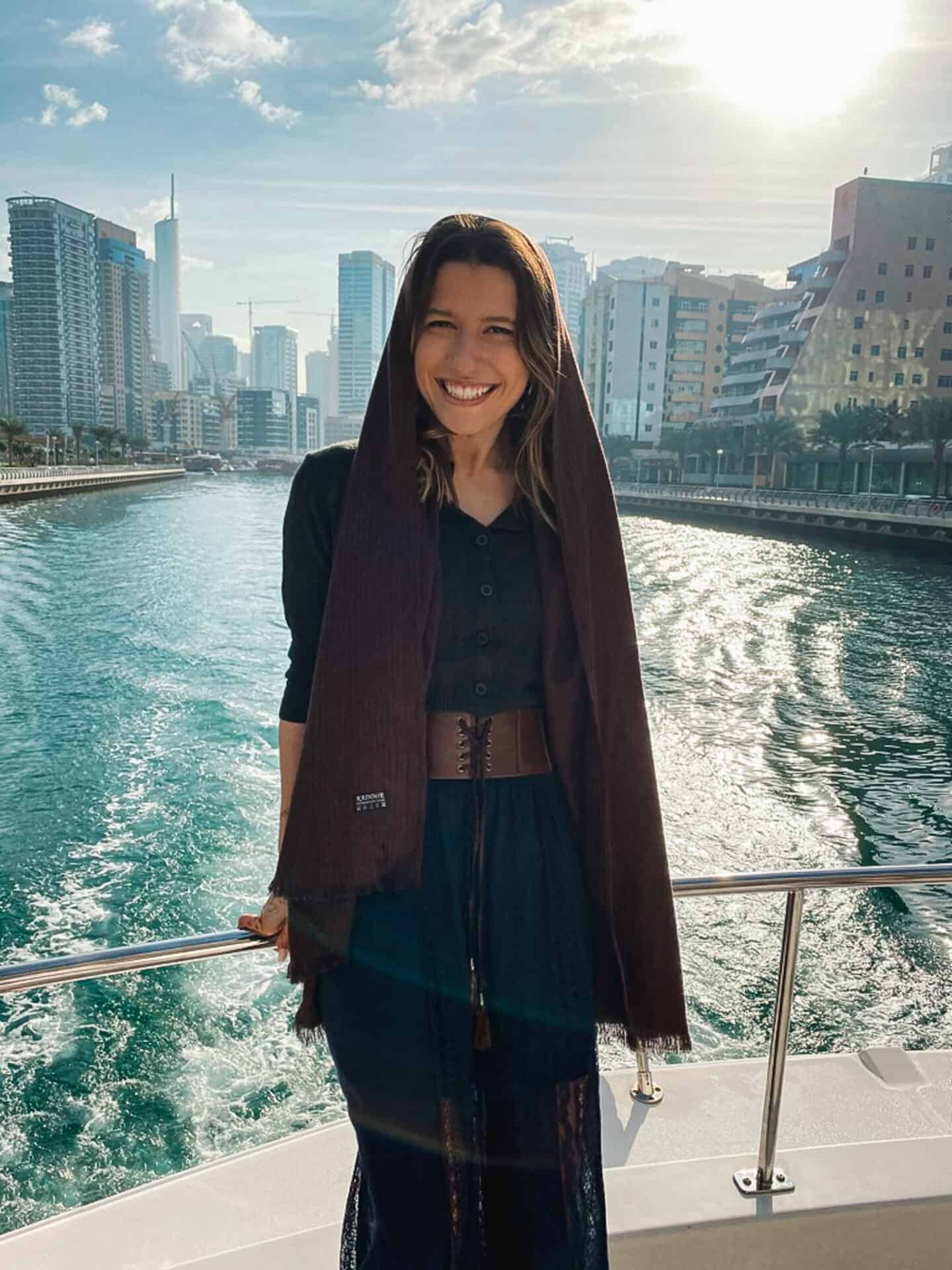
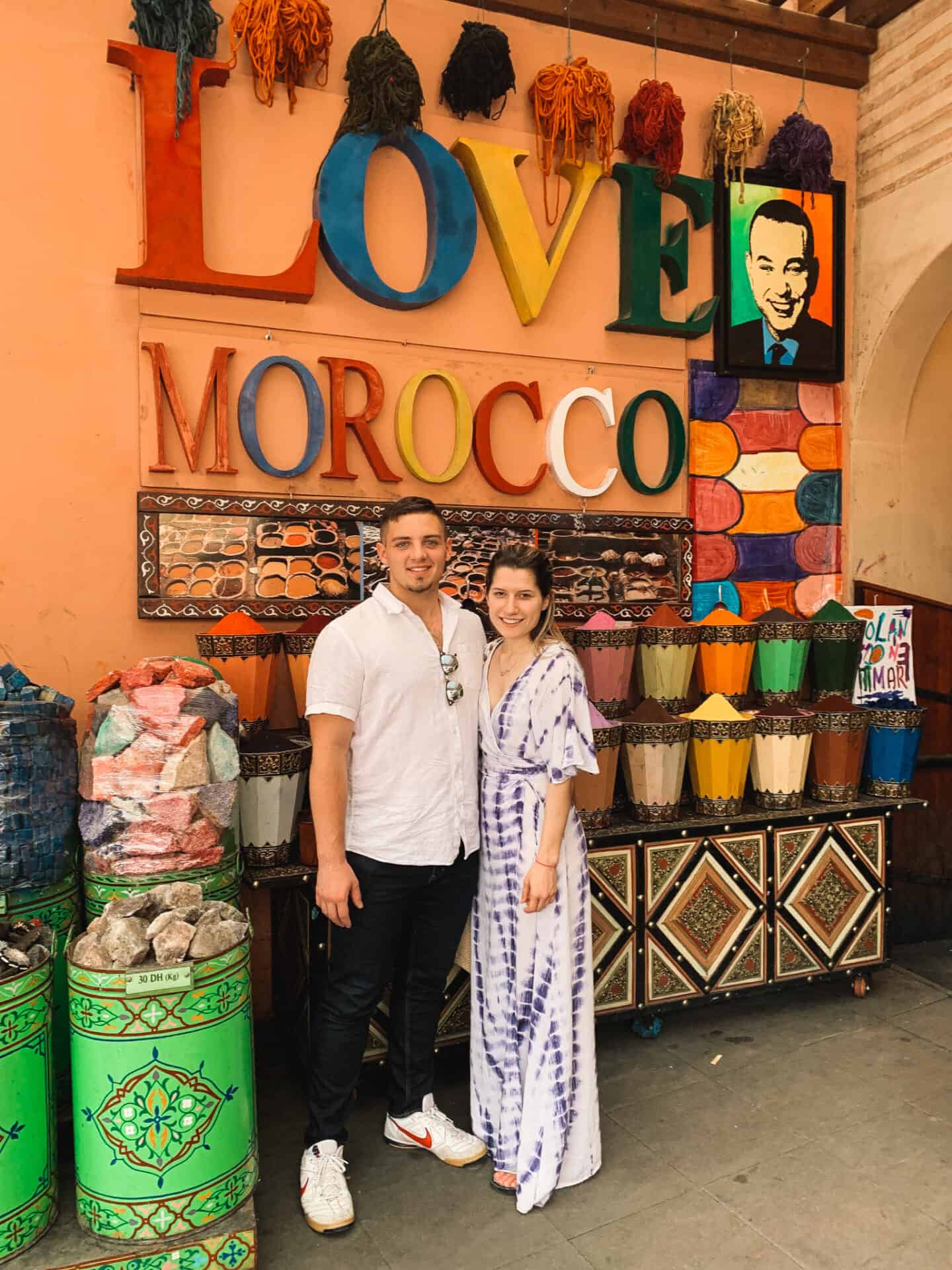
Some countries, including the United Arab Emirates and Morocco, tend to be a bit more lax when it comes to expected tourist attire. Still, it is crucial that you dress extra conservatively when traveling during Ramadan. This is the holiest time of the year for Muslims, and tourists should be respectful of this when traveling in the Arab World or any other Muslim country during Ramadan.
Since there is no official dress code, what should you wear when traveling to a Muslim country during Ramadan? You do not need to wear a full-length gown or a head coverings in most countries. Men and women both should be sure to wear loose-fitting clothing, show minimal skin, and draw as little attention to themselves as possible.
3. Avoid Eating and Drinking in Public as Much as Possible
As I mentioned before, practicing Muslims are not allowed to eat between sunrise and sunset during Ramadan. Not only that – they can’t consume anything. No smoking, no chewing gum, and most shockingly no water. This fast is extremely hard to do, and to think that many Muslims manage to do it in the hot weather of countries like Saudi Arabia and Oman is mind-blowing.
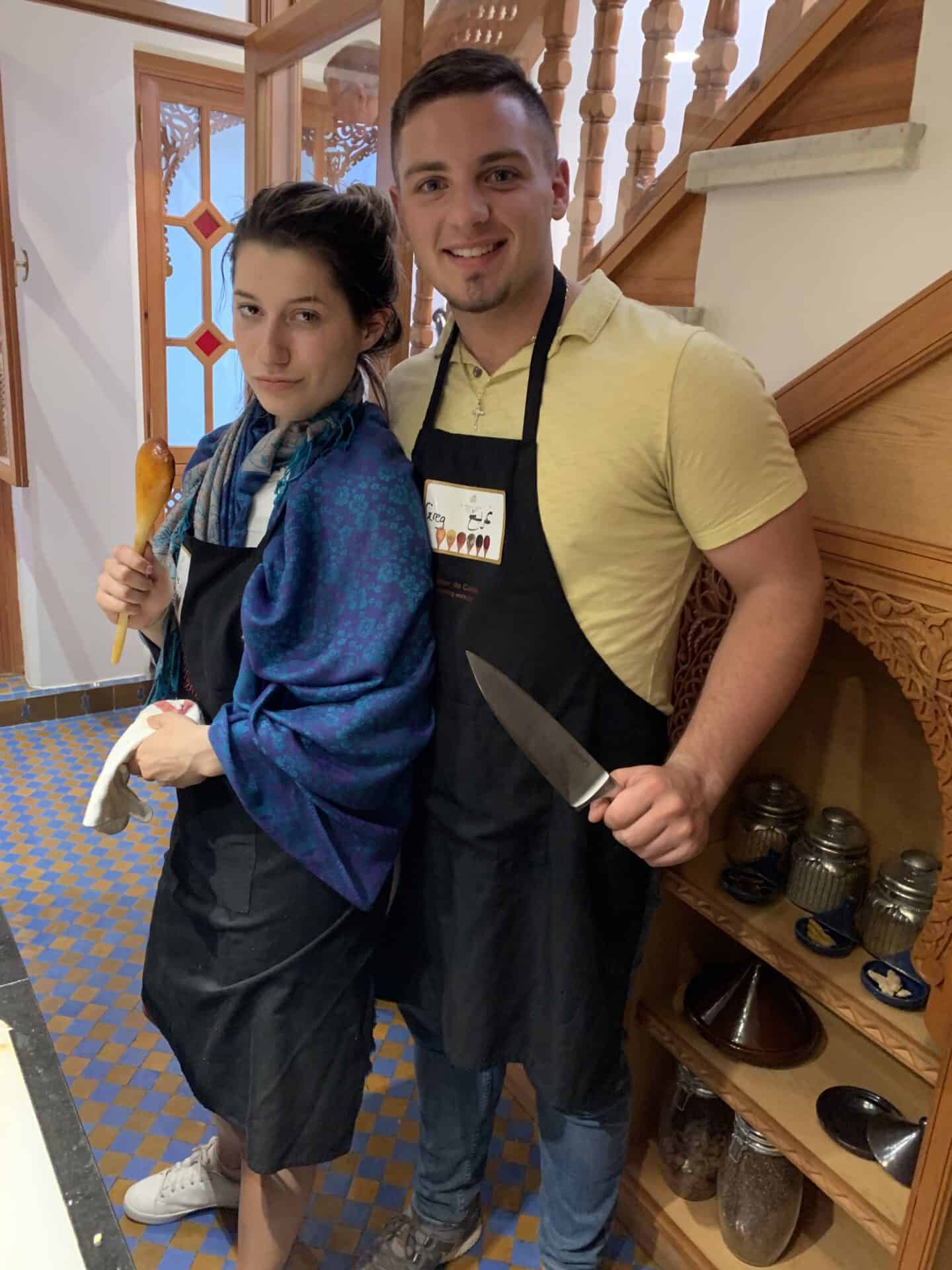
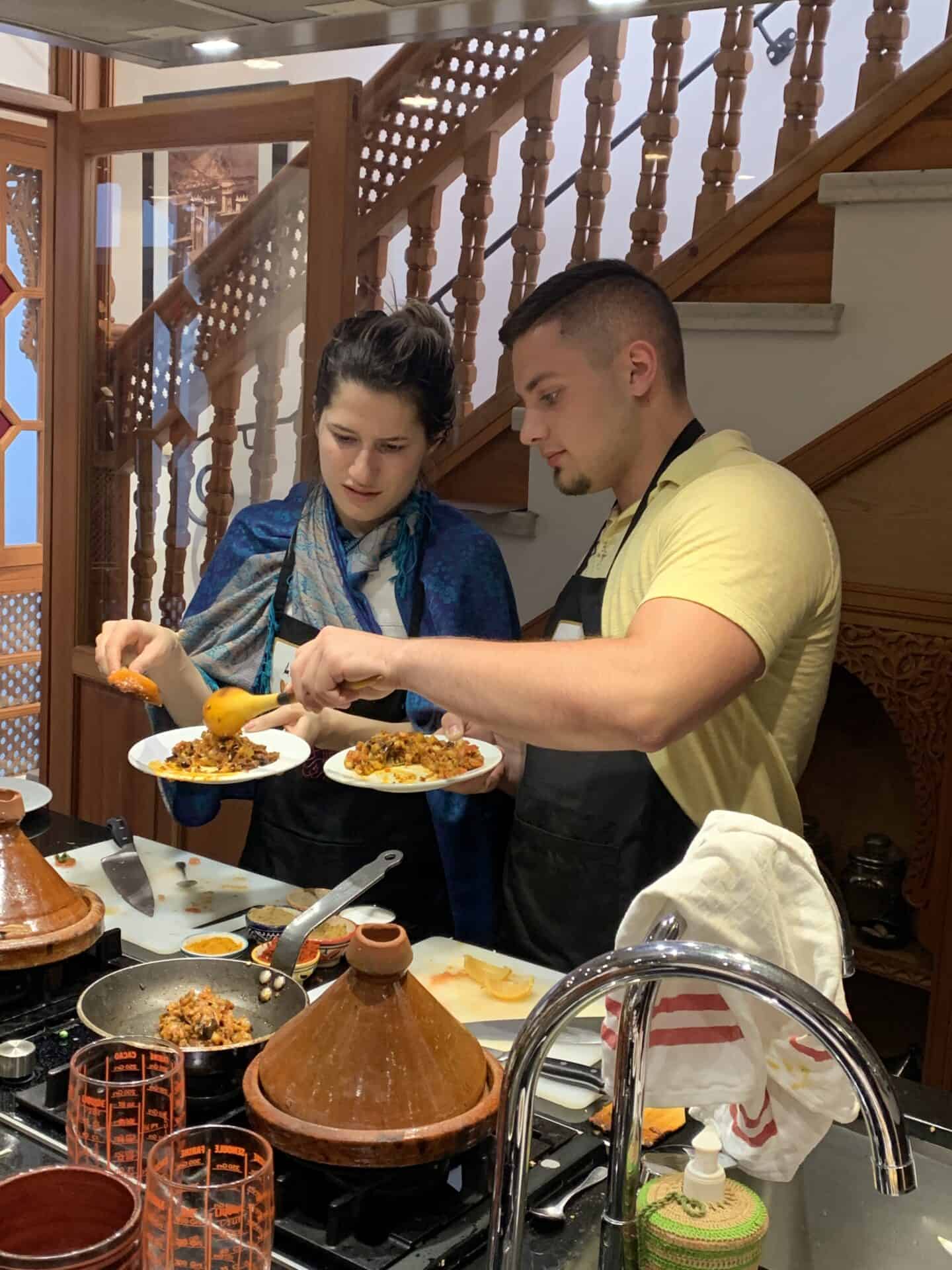
As a courtesy, it is a good idea to make your own consumption of food and beverages as discrete as possible. While eating in restaurants is completely fine, try not to drink or eat while walking around the street.
Just like you wouldn’t want someone eating pizza and donuts in front of you if you were trying to lose weight, practicing Muslims don’t want to see you drinking refreshing water or chowing down on some fresh fruit while they bake in the desert heat during their fast. Again, this is usually not a matter of local laws for non-Muslim travelers, but is a matter of courtesy and respect. Once the breaking of the fast occurs and people start digging into their evening meal, you can happily eat and drink in public areas.
4. Be Extra Patient with People You Encounter
If you were fasting for the brunt of the day, every day, for a month, in stifling heat…would you be chipper and happy? While many Muslims find beauty in the sacrifice of Ramadan, there is no denying that it is a very demanding month for them. There is a good chance that you will run into someone that is having a bad day.
The person you’re talking to is in the middle of an intense experience of sacrifice and prayer, and they are probably both very hungry and very thirsty.
If this happens to you, try to remember that the person you’re talking to is in the middle of an intense experience of sacrifice and prayer, and they are probably both very hungry and very thirsty. They’re probably pretty tired, too. Try to cut them some slack, and remember that you were able to hydrate and fill up on food before heading out to explore, and the people that you’re meeting haven’t eaten in hours.
This is the perfect time to practice a little Arabic! Two friendly greetings during the Muslim holy month of Ramadan are “Ramadan Mubarak” and “Ramadan Kareem” which are sort of like saying “Happy Ramadan.”
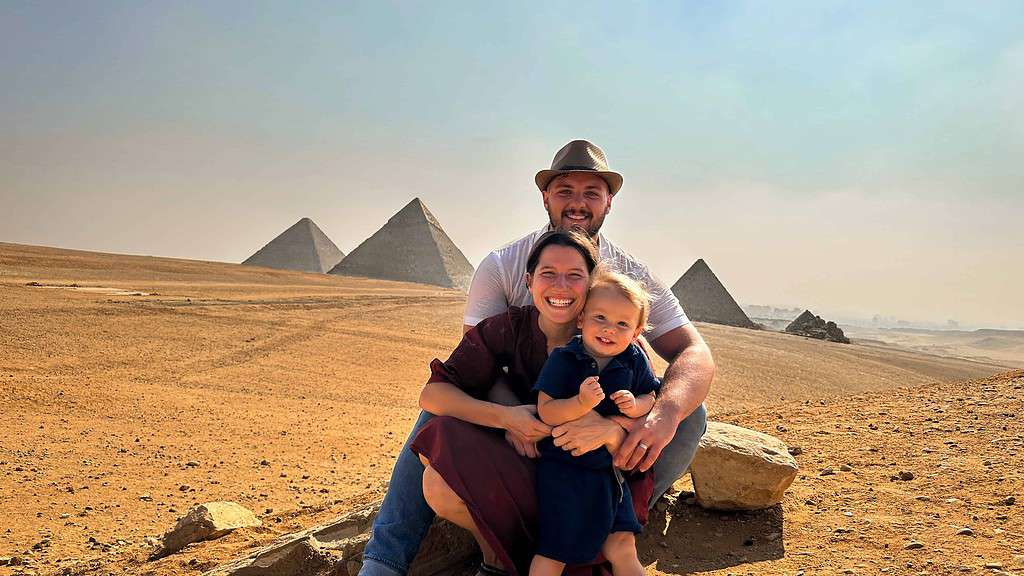
5. Understand and Embrace Local Customs and Traditions
While traveling during Ramadan requires a few sacrifices on your behalf as a tourist, it also provides you with some really unique experiences that can’t be had any other time of the year. Ramadan is truly a beautiful month on a spiritual level, and there are so many opportunities to learn about the culture and people in the country you are visiting.
From joining a fast-breaking meal to watching popular tourist spots take on a new energy at night, traveling during Ramadan is a very unique experience.
Lean into the differences, and seek to learn as much as you can about the local traditions, culture, religion, sacred sites, and people. If you seek these experiences out, you are bound to be met with open arms and make memories that you won’t forget any time soon.
Dressing extra modestly isn’t the law, but doing so is a sign of courtesy that might unlock doors for you. Eating in public isn’t illegal, but it might turn away someone who has a story to share with you. Avoiding public displays of affection can also help to avoid any negative unwanted attention, too.
Regardless, if you are traveling during Ramadan, I encourage you to do your research to understand what Ramadan is and what it stands for. An understanding of Islamic practices, daily prayer times, and religious sites will provide you with a unique perspective throughout your trip. While traveling during Ramadan is a different experience, I’d recommend it to anyone who wants to truly understand the culture of their destination.
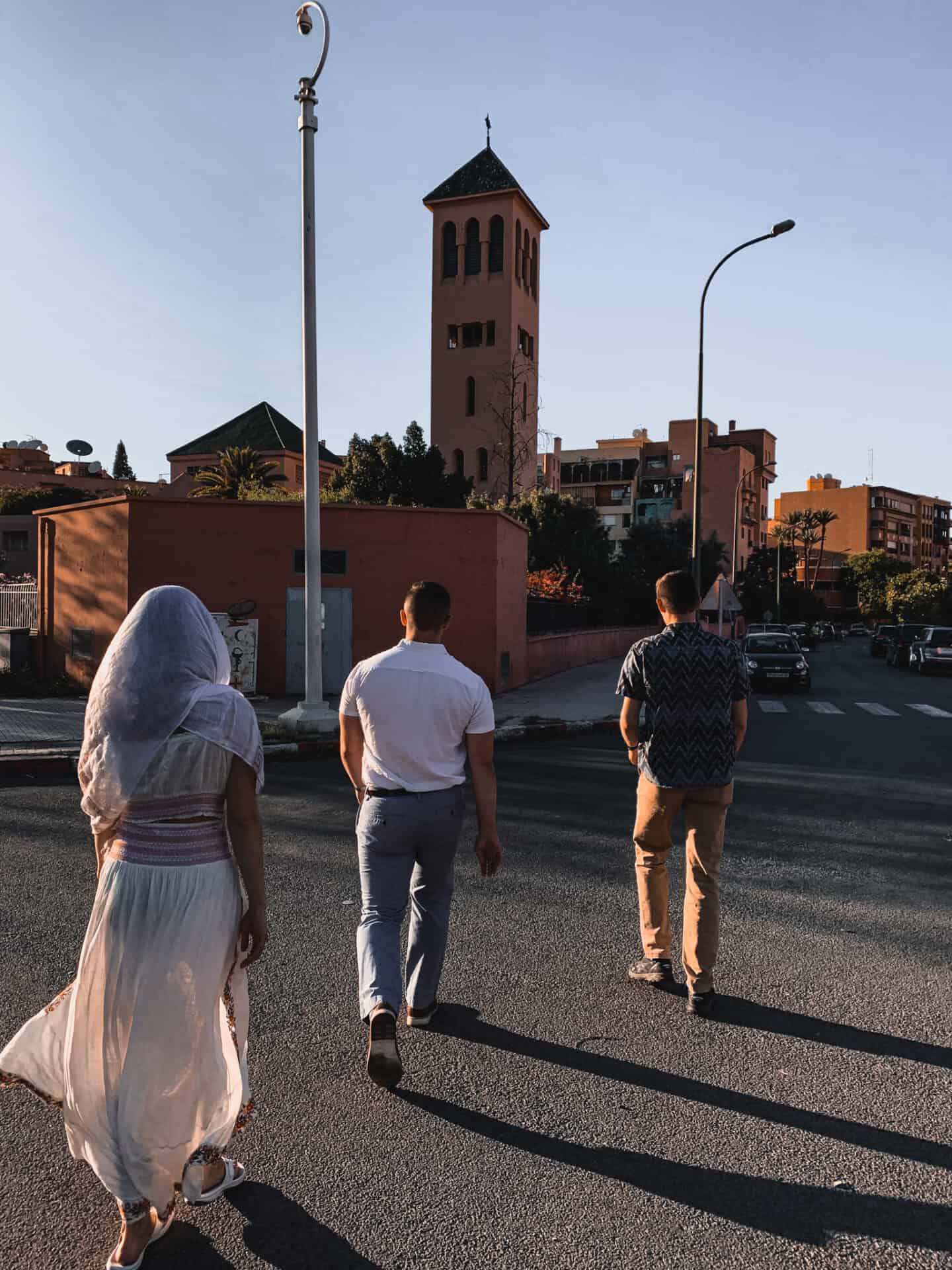
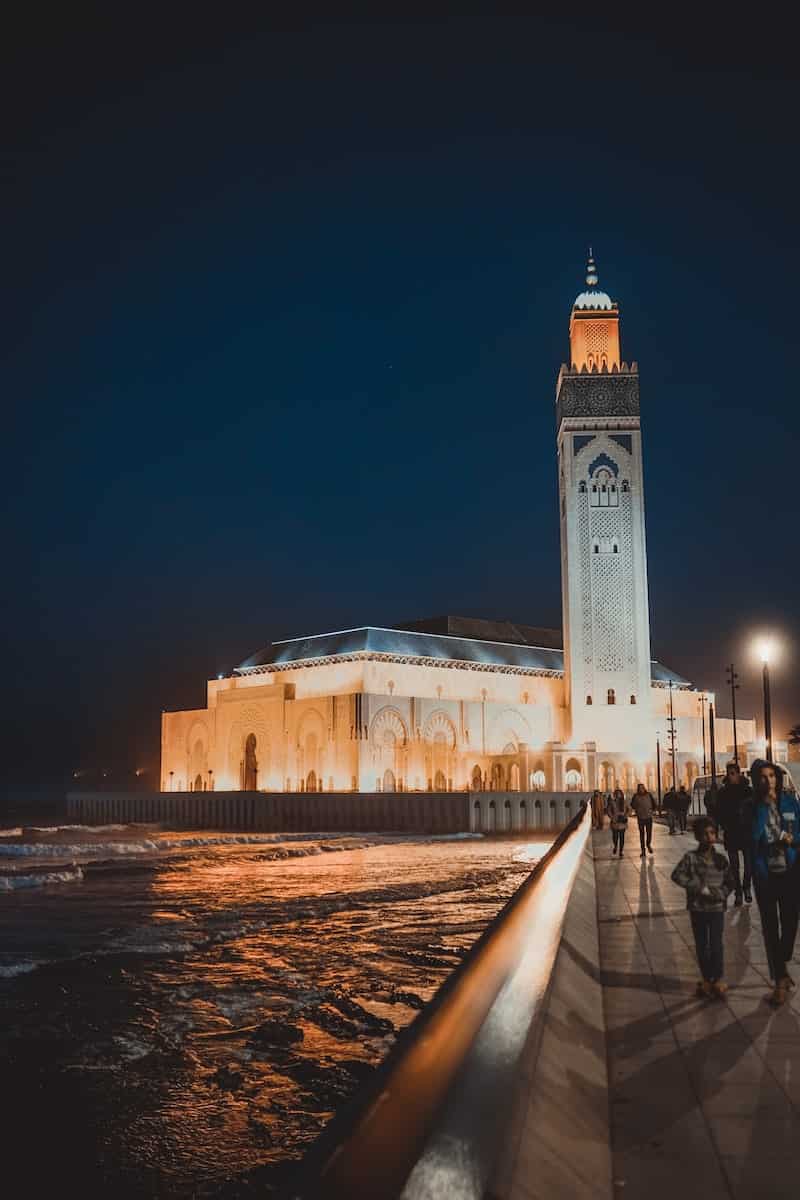
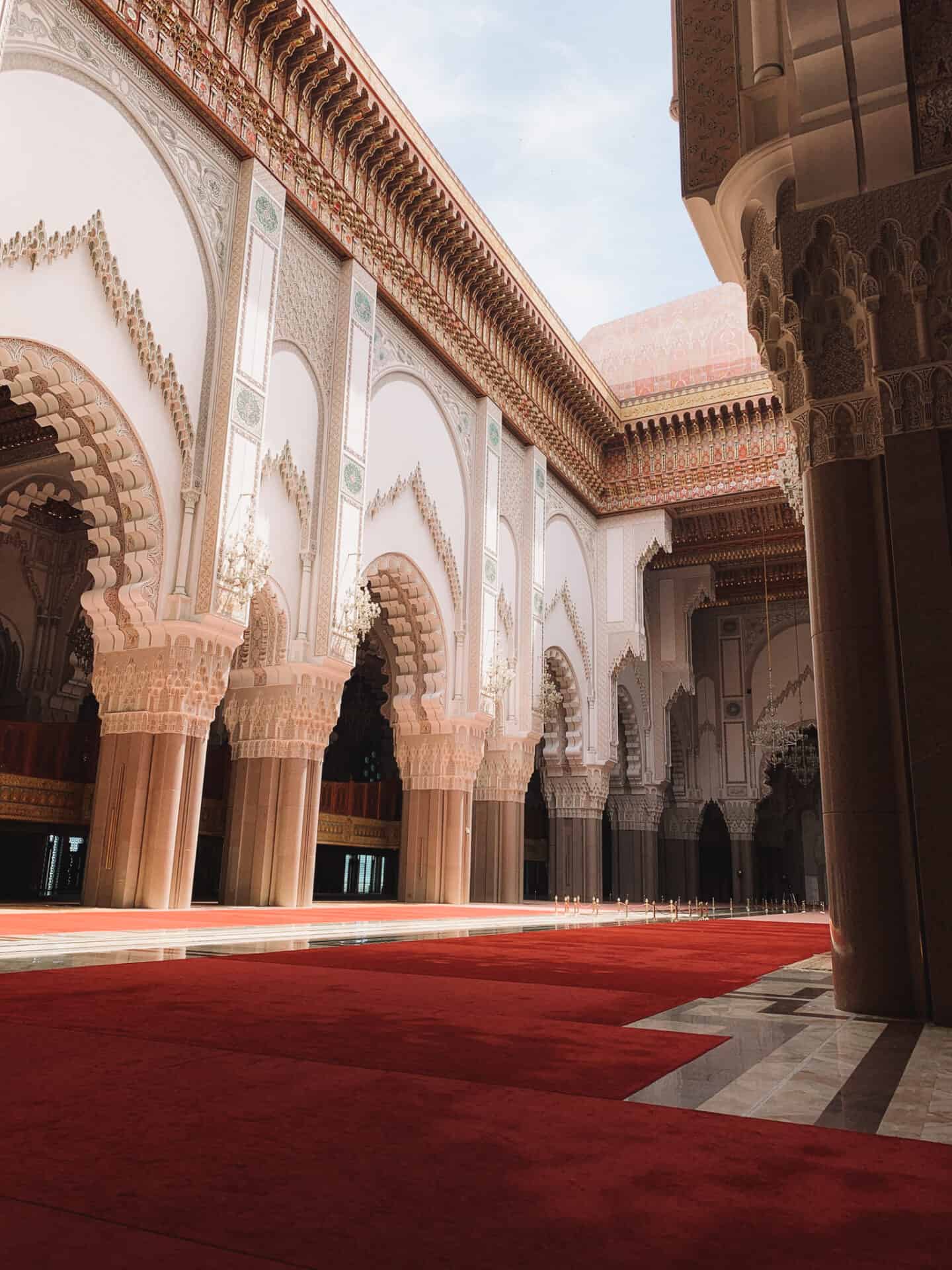
Thanks for reading my post on traveling during Ramadan. Ramadan is a beautiful time of self-sacrifice for Muslims, and traveling to a Muslim country during Ramadan provides an entirely unique experience.
If you have any questions about traveling during Ramadan, please let us know by dropping a comment below. While we are not Muslim, we love studying the religions of the world and may be able to answer your questions.
